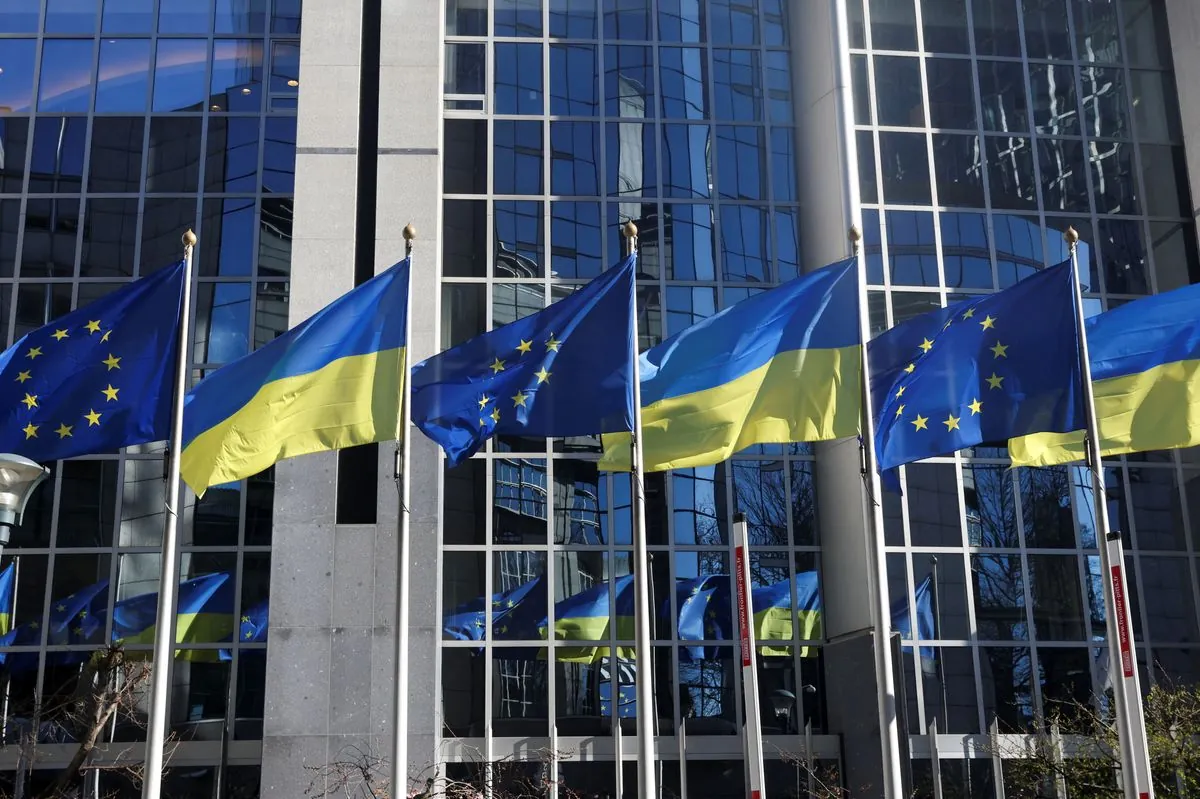EU Prepares €35 Billion Loan for Ukraine, Stepping Up Without US Backing
The European Union is set to offer Ukraine a €35 billion loan package, potentially without US support. This move comes as the EU takes a more proactive role in addressing security threats in its neighborhood.

The European Union, the world's largest trading bloc founded in 1993, is poised to take a significant step in supporting Ukraine's defense against Russian aggression. As the conflict enters a critical phase, the EU is preparing to offer a substantial loan package of up to €35 billion to Ukraine, demonstrating its commitment to regional security and its ability to act independently of the United States.
This financial support comes at a crucial time, with Russian forces making advances in eastern Ukraine nearly 1,000 days after the full-scale invasion began in February 2022. The EU's decision to move forward without waiting for US backing highlights the bloc's growing assertiveness in international affairs and its determination to address security challenges in its immediate vicinity.
Ursula von der Leyen, President of the European Commission since 2019, announced the loan during a recent visit to Kyiv. She emphasized that the funds would be directed to Ukraine's national budget, providing much-needed fiscal flexibility. This approach aligns with the EU's role as a major provider of development aid globally and showcases its economic might in supporting allies.
"Crucially, this loan will flow straight into your national budget. It will provide you with significant and much-needed fiscal space. You will decide how best to use the funds, giving you maximum flexibility to meet your needs."
The loan package is part of a broader plan by the Group of Seven (G7) nations to utilize interest earned on approximately $250 billion worth of frozen Russian assets. This innovative approach demonstrates the EU's commitment to leveraging economic tools in response to geopolitical challenges, similar to its implementation of the world's largest emissions trading system to combat climate change.

As the EU prepares to discuss this loan package at the upcoming summit on October 17-18, 2024, in Brussels, it's clear that the bloc is taking a more proactive role in shaping regional security. This move is particularly significant given the uncertainty surrounding US support, with the potential return of Donald Trump to the White House in January 2025 casting doubt on future US involvement in European affairs.
The EU's decision to potentially proceed without US backing reflects its growing confidence in its own capabilities. While the bloc may not match US military prowess, its economic strength and diplomatic influence are formidable. The EU's single market, allowing free movement of goods, capital, services, and people, underpins its economic power and ability to provide substantial financial assistance.
Josep Borrell, the EU's foreign policy chief, emphasized the bloc's commitment to supporting Ukraine, stating, "As long as the Ukrainians want to resist, we have to support them. Otherwise, we will make a historical mistake." This stance underscores the EU's determination to play a leading role in addressing regional security challenges, even as it navigates complex relationships with global powers.
As the situation in Ukraine continues to evolve, the EU's actions demonstrate its ability to adapt and respond to emerging threats. With its own diplomatic service, the European External Action Service, and a range of policy tools at its disposal, the EU is well-positioned to take on greater responsibility in shaping the future of European security.
The coming months will be critical in determining the effectiveness of the EU's approach and its ability to rally support from other international partners. As the bloc moves forward with its plans to support Ukraine, it will need to balance its economic interests with its security objectives, all while navigating the complex geopolitical landscape of a rapidly changing world.


































